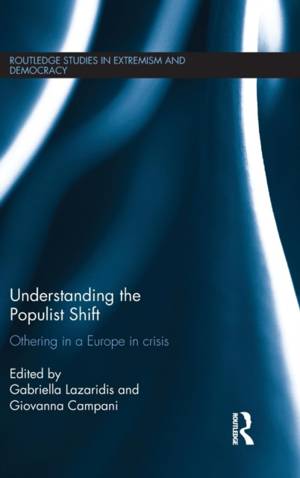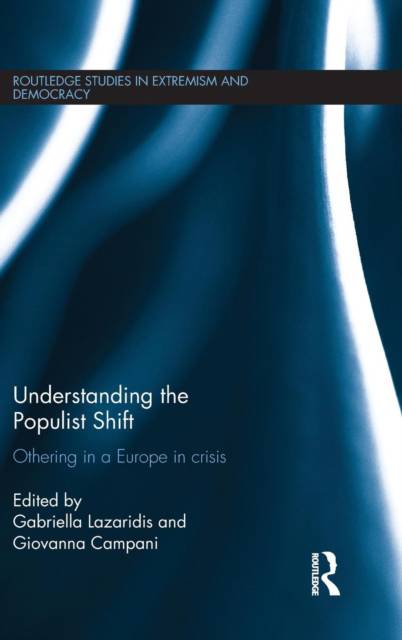
- Afhalen na 1 uur in een winkel met voorraad
- Gratis thuislevering in België vanaf € 30
- Ruim aanbod met 7 miljoen producten
- Afhalen na 1 uur in een winkel met voorraad
- Gratis thuislevering in België vanaf € 30
- Ruim aanbod met 7 miljoen producten
Understanding the Populist Shift
Othering in a Europe in Crisis
Omschrijving
During the European elections of 2014, one of the main issues raised by the media was the electoral performance of so called 'populist parties'. The electorate confirmed its deep dissatisfaction with mainstream political parties, voting for far right parties in parliamentary elections in Northern Europe (Austria, Denmark, Sweden), Eastern Europe (Hungary, where the deeply anti-Semitic Jobbik party gained votes) and in France (where the French National Front won about a quarter of the vote), while in the Southern European countries, battered by austerity policies, it was the radical right and left in Greece (Golden Dawn and Syriza) and the radical left in Spain (Podemos) that obtained excellent scores.
This book examines the growing trend towards far and extreme right populism that has emerged prominently in Northern (Finland), Western (Austria, Denmark, France, the UK), Southern (Greece, Italy) and Central/Eastern Europe (Slovenia, Bulgaria) since the 1990s. Providing a critical understanding of current European trends and analysing the complex phenomena covered by the notion of populism, this book will be of interest to students and scholars researching right-wing politics, as well as European politics more generally.
Specificaties
Betrokkenen
- Uitgeverij:
Inhoud
- Aantal bladzijden:
- 220
- Taal:
- Engels
- Reeks:
Eigenschappen
- Productcode (EAN):
- 9781138101654
- Verschijningsdatum:
- 3/11/2016
- Uitvoering:
- Hardcover
- Formaat:
- Genaaid
- Afmetingen:
- 163 mm x 234 mm
- Gewicht:
- 430 g

Alleen bij Standaard Boekhandel
Beoordelingen
We publiceren alleen reviews die voldoen aan de voorwaarden voor reviews. Bekijk onze voorwaarden voor reviews.








